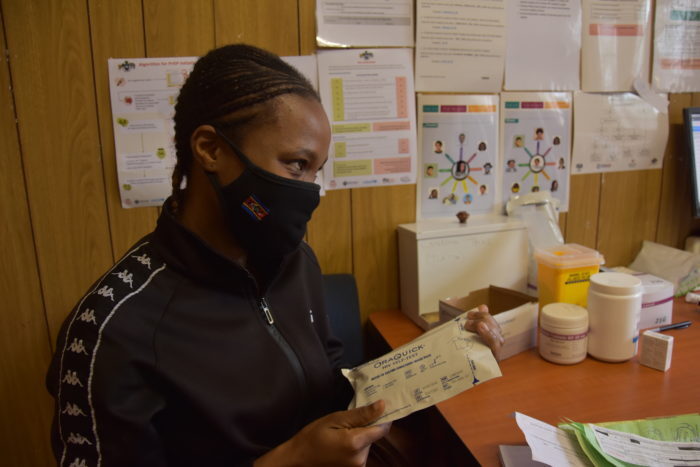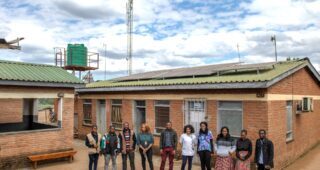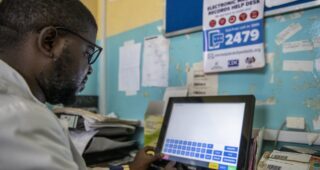Self-testing Links Men in Eswatini to HIV Services
You are here
HIV testing remains low among men, with men comprising only 35 percent of all people tested during the first quarter of 2020.
Eswatini, a small kingdom in southern Africa, was hit hard by the HIV pandemic. The HIV prevalence rate among adults remains at more than one-quarter of the adult population. Despite this alarming rate, Eswatini has made great strides in identifying people living with HIV and retaining them on antiretroviral treatment—which means that those individuals can live long and productive lives.
HIV testing remains low among men, however—with men comprising only 35 percent of all people tested by the Elizabeth Glaser Pediatric AIDS Foundation (EGPAF) at facilities during the first quarter of 2020.

To reach more men with HIV testing services and to increase the number of men who know their HIV status, EGPAF is distributing HIV self-test (HIVST) kits in the facilities that it supports.
From October 2019 to March 2020, EGPAF—with support from the U.S. President’s Emergency Plan for AIDS Relief (PEPFAR)—distributed more than 3,400 HIV self-testing kits. Most of these were distributed through women’s prenatal care appointments for male partners to use at home.
According to EGPAF Senior Clinical Advisor Dr. Kikanda Kindandi, these kits identified 94 HIV-positive men, providing staff with the opportunity to follow up and enrol them on HIV treatment.
Though I was initially afraid to take the test, my wife helped me to administer it and was able to convince me that knowing my HIV status will make our life better as a family. -Facility client, 32 years old
The intervention has received support from both women and men who feel that self-testing gives the men a more comfortable and effective way of learning their HIV status—only needing to visit a facility to confirm the results. Women have reported feeling that it is easier for them to encourage their partners to test for HIV using the self-test kits than to ask them to visit a health facility.

“What they are giving us now is a good thing because the last time I came with [my partner] to the facility, [he did not test] because of the queues and the fact that the facility appeared to be too busy for his liking,” says one young woman, who asked to remain anonymous.
Recounting his experience with the test kit, one man noted that he was happy to have been able to use it at home.
“Though I was initially afraid to take the test, my wife helped me to administer it and was able to convince me that knowing my HIV status will make our life better as a family,” says the 32-year-old man. He tested HIV-positive after using the kit and went to the facility to confirm his results.
Team EGPAF
Eswatini
Male Involvement; Strengthening Local Capacity



